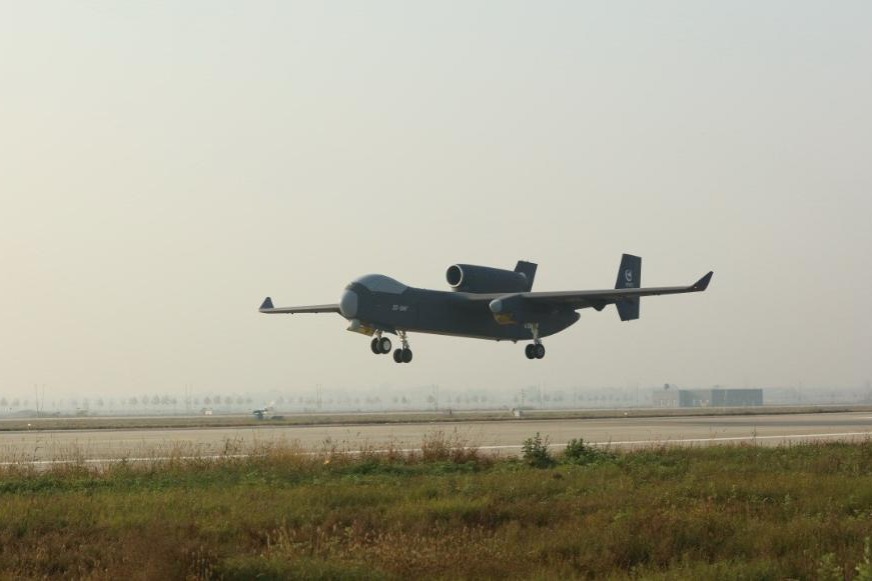Drama pushes Chinese sci-fi frontiers
Animated series Ling Cage, a postapocalyptic odyssey of survival, betrayal and redemption, gains global ground, Xu Fan reports.

When Dong Xiangbo was in primary school, his father once caught him skipping homework to watch Dinosaur Corps Koseidon, a popular Japanese sci-fi series. The punishment was swift: a spanking that left the boy in tears. Yet, even as his father scolded him, Dong kept sneaking glances at the TV, where a superhero battled aliens.
Decades later, that childhood moment feels almost prophetic. Today, the 38-year-old director is at the helm of Ling Cage, one of China's most ambitious sci-fi animated series.
The latest, its second season, marks a return to the futuristic world after a six-year hiatus. Since its release, it has racked up over 320 million online views and earned a stellar 8.9 out of 10 on the popular review site Douban.
Set in a postapocalyptic world, Ling Cage envisions humanity on the brink of extinction after a catastrophic geological disaster. The survivors take refuge in a floating fortress governed by draconian laws: emotional bonds are banned, reproduction is strictly controlled to ensure genetic superiority, and the weak are exiled.
Marc, the series' protagonist, was once a commander tasked with retrieving vital supplies like food and medicine from the dangerous surface, overrun by monstrous predators. But after losing his beloved in a scheme engineered by the fortress ruler's son — once his friend and mentor — Marc transforms into one of the very creatures he hunted.
The new season picks up where the first left off, introducing a seemingly utopian village, a stark contrast to the fortress. At first idyllic, with residents enjoying peaceful lives, the settlement is soon revealed to harbor sinister experiments and moral compromises. Marc, still clinging to his human consciousness, embarks on a new adventure to face even greater challenges.
The second season, enhanced by advanced technologies like motion capture, features over 10,000 different shots.
For producer Ruan Rui, also the founder of animation studio YHKT Entertainment, the village's design draws from ancient Chinese philosophy — particularly the belief that human perseverance can overcome even the harshest environments. While sci-fi has long thrived in the West, Ruan says he and his fellow creators have worked hard to develop sci-fi stories rooted in Chinese culture that reflect distinctly Chinese ideas.
Such instances range from characters using martial arts to fight monsters to engaging in typical Chinese pastimes like playing mahjong, eating hotpot, and gathering elderly villagers for square dancing as a form of exercise.
When the idea for the franchise emerged around 2015 or 2016, global tensions also shaped its themes. "We originally wanted to explore how people from different countries could unite and work together to confront a global crisis," Ruan explains.
Director Dong, also the cofounder of Wuhan-based YHKT Entertainment, says it took them four years to produce the second season. It aims to delve deeper into thought-provoking sci-fi themes — such as the limits of human potential and whether social systems trap us in patterns that are hard to escape.
A self-taught animator, Dong traces his passion back to a chance encounter in an internet cafe where he saw a middle-aged man creating animations on a computer. Fascinated, Dong bought nearly every animation book he could find and taught himself when he was in college.
Fueled by his interest in sci-fi — from classics by British novelist Arthur C. Clarke to works by Asia's first Hugo Award winner Liu Cixin, as well as Hollywood blockbusters like Canadian director Denis Villeneuve's Arrival (2016) — Dong says he aims to blend universal sci-fi themes with Chinese cultural elements, even weaving acupuncture into the story.
Now leading his team in writing the script for the third season, Dong says he visited several research institutions, including the Institute of Vertebrate Paleontology and Paleoanthropology, Chinese Academy of Sciences, consulting experts on incorporating cutting-edge ideas such as brain-computer interfaces to make the new season even more compelling.
"We hope that, through more high-quality scifi animated projects like the Ling Cage franchise, Chinese animators can elevate the global recognition of domestic animation and earn a place alongside top players in countries like the United States and Japan," says Dong.


































